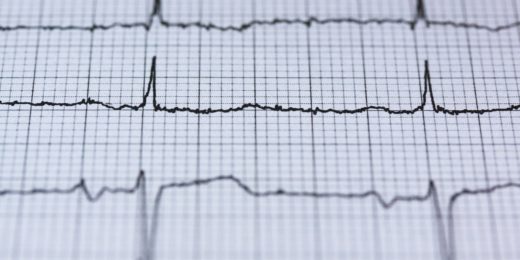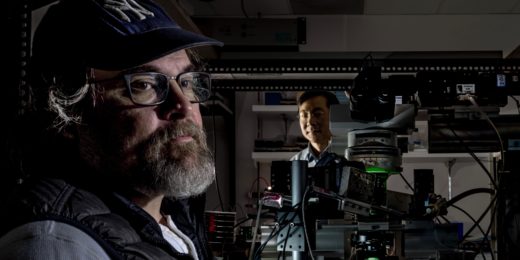Stanford researchers use gene editing and stem cell technologies to determine whether to worry — or not — about mysterious genetic test results.
Author: Tracie White
Epidurals increase in popularity, Stanford study finds
The percentage of pregnant women getting epidurals or other spinal analgesia has climbed to a high of 71 percent, according to a Stanford study.
Birds never go deaf, but why do humans?
By studying how birds regrow damaged inner ear cells to fix hearing loss, scientists hope to learn how to cure deafness in humans.
Mobile devices improving heart health step-by-step
Stanford heart doctors bank on digital health to improve heart care in the future by monitoring encouraging exercise, detecting and tracking conditions like atrial fibrillation, and more.
To prevent an antibiotic from causing hearing loss, researchers team up to design new drugs
Stanford scientists used discoveries in the lab to design new versions of a widely used antibiotic to prevent the side effect of hearing loss.
New app screens for undiagnosed cases of Alzheimer’s disease
With half of all cases of Alzheimer's disease and related dementias going undiagnosed, researchers develop app to help in early screening
U.S. doctors saddled with four times the amount of note taking as foreign counterparts
Regulatory reform could reduce the bloated documentation requirements facing American physicians and help to reduce rising levels of burnout.
Listen to the human stories, the Henrietta Lacks family tells scientists
Author Rebecca Skloot and Henrietta Lacks family members discuss the importance of telling the human stories behind medical science
Stanford Refugee Research Project aims to empower refugees
In the shadow of recent reports of chemical attacks in Syria, coordinators of Stanford's fledgling refugee project are working to help people in war-torn countries who are displaced and homeless.
Keeping fit fights off genetic risk for heart disease, Stanford study finds
In one of the largest observational studies on fitness and heart disease, researchers examined found that people with higher levels of grip strength, physical activity and cardiorespiratory fitness had reduced risks of heart attacks and stroke.
Impaired cell cleanup associated with abdominal aortic aneurysms, new study finds
Abdominal aortic aneurysms may be caused by the overexpression of a "don't eat me" protein that blocks the disposal of dead and dying cells.
Intense magnetic stimulation could reduce severe depression, new study shows
Several severely depressed patients were helped by a new, experimental form of transcranial magnetic stimulation developed by Stanford Medicine researchers.













